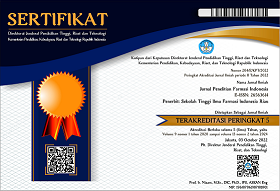The Role of Village Teachers in Instilling Islamic Educational Values Among the Community in Ganjan Hamlet, Dendang Village, Kelapa District, West Bangka
Abstract
The problem in this study is the rapid influence of globalization, paying attention to Islamic education in the Ganjan hamlet community, where the education received by the community, especially religious education, is still less than optimal, and it can be seen that the people in the Ganjan hamlet often commit acts that violate Islamic law. The objectives of this study are to describe the role of village teachers from the perspective of the community in Ganjan Village. To determine the role of village teachers in instilling Islamic religious values in children in Ganjan Village. To determine whether the role of village teachers can instill religious understanding among the community in Ganjan Village. This research is qualitative in nature, used to obtain in-depth data. Respondents were selected based on the objects and subjects of the research, with four village teachers as the objects of the research and the village head, hamlet head, and six members of the Ganjan Hamlet community as the subjects. Data was collected through observation, unstructured interviews, and documentation. Data analysis techniques included data reduction, data presentation, and conclusion drawing. The results of this study are as follows: first, the role of village teachers in the community's perspective includes spiritual, social, and moral roles; village teachers act as teachers and educators of the community, mentors, and role models. Second, the role of village teachers in instilling Islamic educational values in children in Ganjan Hamlet is divided into four roles, namely teacher and educator, mentor, role model, and motivator. The Islamic education values instilled by village teachers include faith, worship, morality, and social values. Third, the role of village teachers is to instill religious understanding in the community. After participating in religious activities such as recitation of the Quran, majlis ta'lim, and other religious activities, the community's religious knowledge and understanding increases, and their faith and worship improve.







.png)





